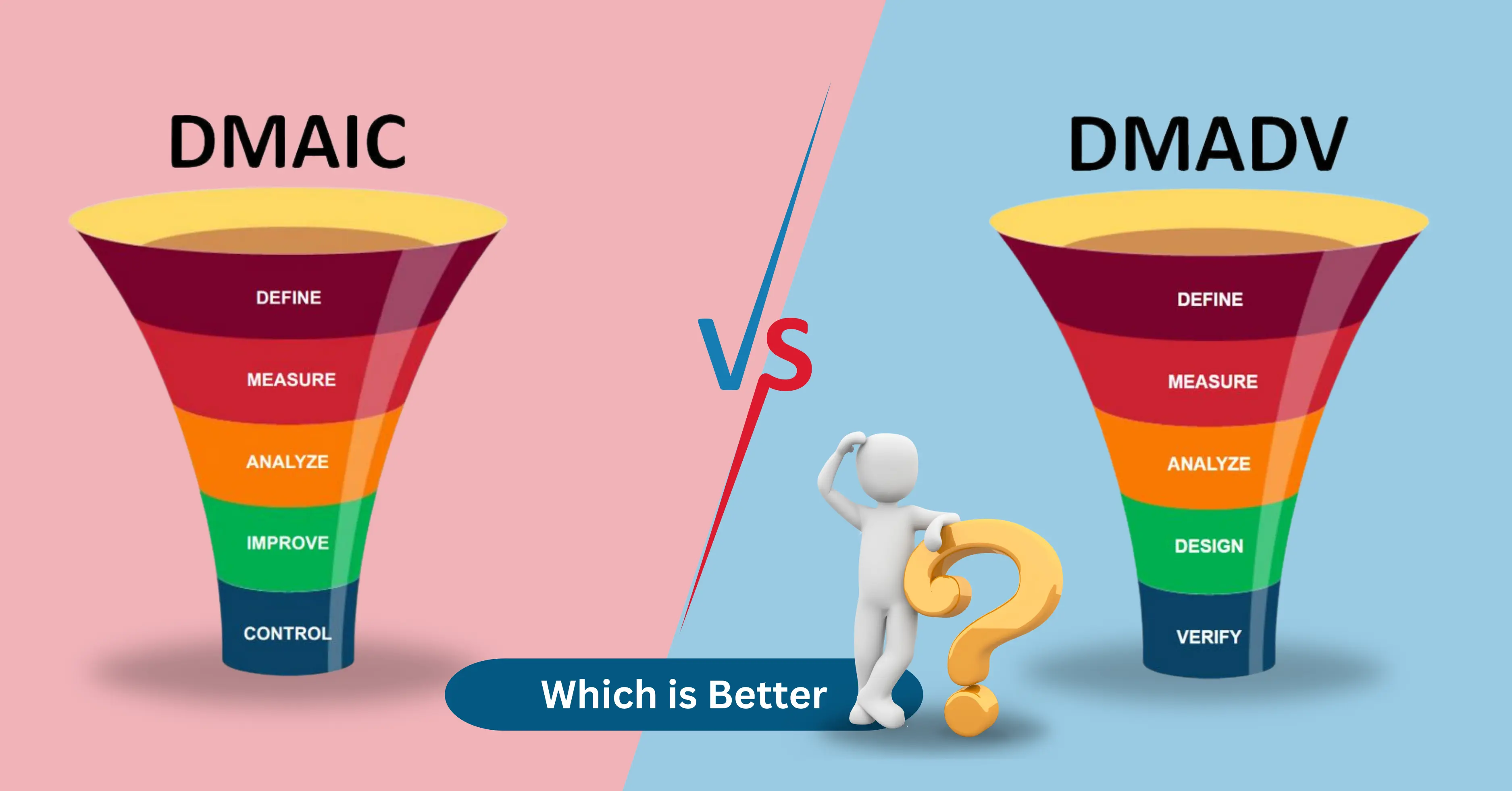Top 30 Quality Analyst Interview Questions and Answers 2025
-
 By Syed Irfan
By Syed Irfan - Published on Feb 20 2025

Quality Analyst - Overview
When choosing the vocation wherein you need to be, the main consideration isn't just the one you think can appreciate dealing with it. Yet, being in that classification requires a ton of abilities, including understanding the obligations as well as the fundamental occupation obligations for the profession you picked.
The equivalent goes when picking a vocation as a career Quality Assurance Analyst. It doesn't just expect you to be a decent analyst, brisk student, or exceptional scholar; in addition, it requires you to be a perplexing issue solver as well.
As a Quality Analyst, you can acquire the experience of assessing the total improvement of an item or an undertaking. You can likewise be associated with researching and deciphering bugs while additionally keeping up appropriate documentation.
For a Quality Analyst new employee screening, the Quality Analyst Interview Questions are required to be specialized just as scientific, which will test your core skills as a QA Engineer.
Table of Contents
List of Top 30 Quality Analyst Interview Questions and Answers in 2025
Here are some questions for prospective Quality Analyst employees Meet Quality Analyst Interview Questions to help you prepare for the job. When choosing Quality Analyst Careers, the central consideration isn't just the one you think can appreciate your chipping away at it.
In any case, being in that class requires a ton of abilities, including understanding the obligations as well as the important occupation obligations for the profession you picked.
The equivalent goes when picking a profession as a QA analyst. It doesn't just expect you to be a decent analyzer, snappy student, or exceptional mastermind; it additionally requires you to be an unpredictable issue solver as well.
Quality Analyst Interview Questions Set 1
1) What is Characterize Testware?
It is used to disclose the materials used to do a test. Testware includes curiosities delivered in the test interaction to execute, plan, and plan messages like anticipated outcomes, contents, and information bases and data sources.
2) What is "Clarify Branch Testing"?
Testing every single one of the potential branches from which every choice is refined, whenever it occurs, is known as brand testing.
3) What do you mean by the term "QA"?
Quality confirmation is utilized to help increase client certainty, the association's capacity, and work effectiveness. It is a procedure used in the improvement of items that ensures a specific degree of quality.
4) What is the difference between Quality Assurance (QA), Quality Control (QC), and Software Testing?
Programming testing is a cycle looking at whether the item created by an engineer satisfies the quality guidelines. The essential goal of doing programming testing is to find bugs and fix them. On the other hand, quality assurance (QA) alludes to an efficient way that includes checking measures.
The cycles play a part in creating quality items. It tracks the yields and goes on to change the activities to meet the ideal results. At last, Quality Control (QC) is a trying method that frets about the quality of the item in assembly.
As a testing device, it discovers abandoned items. In the wake of discovering shortcomings, it presents ideas on the most proficient method to kill them. It falls under the duties of an analyst.
Ensure operational excellence by understanding the key differences between Quality Assurance and Quality Control.
Suggested Read: Quality Assurance vs Quality Control
5) What is a Bug Life Cycle?
The bug Life Cycle is likewise referred to as the defect life cycle. It is a product testing cycle where a bug or imperfection experiences its lifetime. It comprises a few phases:
An analyzer finds a bug. The individual appoints it with one of two statuses, open or new.
The discovered bug is then allocated to a specific improvement project facilitator. The person examines the idea of the bug. The chief will decide if the bug is substantial or not. In the event that the imperfection isn't substantial, the undertaking facilitator will dismiss the bug with the status "Dismissed."
At the point when it isn't, the next stage is to check whether the extent of the deformity is known. In this situation, imperfection isn't essential for the current delivery. At that point, that deformity is delayed.
In this stage, the analyzer assesses whether an imperfection like the current one had previously been found in the event that, indeed, the bug is allowed with a "copy" status.
The bug is currently being doled out to a designer. It is allowed with the status "In Progress."
In the wake of fixing the code, the bug is allowed with a status of "Fixed."
To wrap things up, the analyzer re-tests the code. On the off chance that the code passes to what we allude to as an experiment, the bug is "Shut." If the experiment fizzles, the deformity is reopened. Indeed, it is allocated to the engineer until it breezes through the assessment case.
6) What Is The Role Of QA Testers In A Project Development?
Quality Assurance analyzers are the fundamental parts of testing. They guarantee quality by observing the whole advancement process. By checking, they track the results of the testing interaction and go on to change the cycle.
This happens when the cycle isn't in accordance with the expected reason. Other than the observing job, QAs are liable for, in general, arranging and executing the interaction. They likewise make a schedule and go into arrangements with regard to the Quality Assurance plan identifying an individual item.
With respect to experiments, it is one of the parts of an analyzer. The supervisor or official in control may allocate different capacities to analyzers.
7) Why Use Automated Testing Over Manual Testing? What Are the Benefits of Automated Testing?
Computerized testing runs a lot quicker when compared with manual testing, and accordingly, the time has come to save. In contrast to manual testing, automated testing takes into account the misuse of the computerization device.
The convenience of the computerized content is conceivable with the use of mechanized testing. Additionally, recurrence is being used in the experiment in mechanized testing because of its flexibility.
The manual testing isn't appropriate for examination or future reference because of the broad manual records to be assessed. Robotized testing has numerous advantages. A portion of these benefits involves the expanded viability of tests and testing consistency.
The convenience of tests and the decrease in test spans are recommendable advantages of computerized testing. Different advantages incorporate test engineer profitability, decreased upkeep expenses, inclusion of relapse, and so forth.
8) What Does Crude Testing Depend On?
Much implies they make, read, refresh, and erase.
9) What Is Volume Testing?
A sort of programming application that distinguishes whether the framework can handle the greatest measure of information or volume is known as volume testing.
Quality Analyst Interview Questions Set 2
10) What Is a Use Case?
It is the steps of acting on how a user calls in a system to accomplish the process. It shows how the system could be used in various manners for user tasks, which defines the functional requirements of a system.
Key Aspects of a Use Case:
-Actors: The users or entities interacting with the system (e.g., customer, administrator).
-Goals: The objective the actor wants to achieve (e.g., making a purchase, updating account information).
-Preconditions: The state or conditions that must be met before the use case begins.
-Steps: The sequence of actions or events that the actor performs to achieve the goal.
-Post-conditions: The system's condition following the completion of the use case.
-Exceptions: Alternative flows that might occur if things don't go as expected (e.g., invalid login).
11) What is a QA Analyst?
The quality analyst, otherwise called the programming quality analyst, is an individual who executes various practices and standards on the product to ensure that it is of top quality throughout its structure and interactions.
It is their obligation and duty to move significant plans and to experience different test measures for programming that have grown as of late to ensure that it works as per the main details.
The greatest contrast between QA analysts and QA analyzers is that the analysts emphasize eliminating slip-ups and deserts, while the analyzers attempt to discover bugs and analyze all mistakes before the item has been delivered. They do this again after the delivery.
12) What is your understanding in regards to a Test plan? Characterize use-case testing.
At the point when you have a reasonable idea of what, when, how, and who, at that point, things become simpler.
The equivalent is the situation with programming testing also, where the test plan is an archive that comprises the extension, approach, assets, and diagram of the testing project, just as the exercises for following the advancement of the task done.
Enroll a portion of the key difficulties that are confronted while performing software testing. As we say total testing can never be accomplished, there are a few difficulties involved with it. Be it a little or a confounded one, there are a few difficulties confronted while performing programming testing for any venture.
Characterize use-case testing.
The use of case testing can be characterized as the practical discovery testing procedure that catches the arrangement of associations that have happened among 'entertainers' and 'framework'. Here, "entertainers" are addressed by the clients and their communications.

13) Define Test Strategy.
A bunch of rules or testing approaches that are typically done by the task director to decide the test plan and general testing approach are characterized as "test strategy." It is found as a small part of the test plan and is utilized by various undertakings.
Distinctive test approaches are followed depending on variables like the nature and space of the item, the danger of item disappointment, aptitude for working with the proposed devices, and so forth.
These methodologies are additionally organized as follows:
-Proactive methodology, where the test plan approach begins before the form is made. Hence, it helps in finding and fixing bugs before the form is submitted.
-Receptive methodology, where the testing approach is begun after the completion of the test plan and coding.
As indicated by you, when is the acceptable opportunity to begin QA in a venture?
According to the Software Development Life Cycle (SDLC), the testing stage is executed after the completion of the 'Usage and Coding' stage.
Yet, in the present situation, to accomplish the best outcomes, it is necessary to begin the QA of the venture or item at the beginning of the task. Following this methodology will prompt the significant benefits given below:
-Early cycle intending to live up to clients' quality desires.
-Great and sound correspondence between the groups.
-It gives a sufficient measure of time that is needed for setting up the testing climate.
-Permits early survey and endorsement of test plans.
14) Clarify the advantages of Destructive Testing.
Destructive testing is characterized as the type of testing that is completed by the testing group to decide the place of disappointment of the item under various burdens, for example, to assess the primary application execution to decide its solidarity, durability, hardness, or vigour.
15) What do you think about Data-Driven Testing?
It is obvious to each mechanization analyzer that the contents of the robotization test cover just the territory of the application to be tried with a recorded arrangement of client activities.
Typically, these activities don't deliver any blunders, as the input information is taken under the conditions that we have entered while recording.
Information-driven testing comes into the picture here, where we need the application to function true to form for information purposes.
For this reason, the information needed for information-driven testing is not hard coded, yet test contents take their information from information sources like CSV documents, ODBC sources, and so forth.
To sum up, information-driven testing plays out the accompanying activities as follows:

16) What is the Traceability Matrix? Is it needed for each undertaking?
In any venture, traceability is the method for following the advancement of the task concerning the usage of new functionalities, the upgrade of existing functionalities, and so on.
Through a discernibility framework, you can generally watch out for the venture's progress, with each angle kept up-to-date according to the date.

17) Describe the advantages of Agile Testing.
Being an analyzer, the center becomes more efficient at conveying the quality item in less time by understanding the end-client prerequisite and, above all, by ensuring that there are no imperfections on the end-client side.
Here, Agile testing comes into play, which follows the rule of dexterous programming advancement and rapidly approves the customer's necessities.
Referenced below are the advantages of Agile testing:

18) What is Negative Testing?
Negative testing is the strategy for guaranteeing that the security of an item or application is kept up, or to say, don't bomb," when unforeseen information is given. The fundamental motivation behind this type of testing is to approve the application against any conceivable invalid information.
This type of testing is otherwise called 'disappointment testing' or 'mistake way testing', and its principal reason for existing is to check the application's unwavering quality under negative situations.
It additionally uncovered programming shortcomings, detected deficiencies, and gave an unmistakable thought of information debasement.
19) For what reason is Automation Testing liked over Manual Testing?
Well, both Automation testing and Manual testing have their significance and presence in the realm of testing. Given beneath are some significant viewpoints on which Automation Testing is liked over Manual Testing:
- A similar test content can be utilized each an ideal opportunity to run the test; subsequently, robotization testing is considered the most dependable and productive one.
- For the most part, I liked if there should be an occurrence of relapse testing and rehashed execution.
- Mechanization testing is viewed as a financially savvy one on account of long-haul execution and accordingly guarantees the superior quality of programming.
- Test contents are reusable and quick, and everybody can see the outcomes.
- Apparatuses utilized for robotization testing are all the more quick and dependable when contrasted with the manual methodology.
- Albeit, some more factors discovered that robotization testing is liked over manual testing. The previously mentioned are the main considerations.
Quality Analyst Interview Questions Set 3
20) What do you understand by 'Test adequacy's and 'Test productivity'?
Test Efficiency can be characterized as computing the Number of assets and test code devoured to perform or, say, execute a specific capacity. It additionally decides the Number of assets used in Software item creation. This can be dictated by the recipe, which helps maintain quality standards:
Test Efficiency = (Number of imperfections settled/complete number of deformities submitted)* 100
Test Effectiveness can be characterized as the proportion of assessing the test climate and its impact on the product application. Here client reaction is assessed when application necessity is satisfied.
This can be controlled by the equation:
Test Effectiveness= (Number of deformities discovered/Number of experiments executed)
21) Explain the interaction of Project Tailoring.
Project tailoring is a predictable and progressing measure that ensures that the exhibition of the task is right and is as per the business necessities. The entire interaction incorporates exploring and altering the venture information according to the current operational needs of the association.
The survey cycle is done at the hierarchical level; however, the execution of the fitting plans is done at the undertaking level. The primary objective and prerequisites of the association, just as clients and client connections, are the two main considerations that ought to be considered all the while.
Scarcely any perspectives according to the authoritative objectives under the fitting cycle are:
-Task approach
-Systems
-Controls and cycles included
-Jobs and duties
22) For what reason is Performance Testing important for any application?
In basic language, Performance testing is done to decide the conduct and reaction of an application under different circumstances. This assists with social occasion data in regards to application steadiness, adaptability, speed, and so forth. The explanations behind doing execution testing can be perceived from the following points of view:
-It decides the reaction time and execution of an application part under its responsibility.
-The reaction season of the client's movement is determined.
-Requires experienced software engineers with broad specialized language skills.
-Decides the conduct of the application under load, for example, at the point when the quantity of the client increases quickly.
23) What is Specification-Driven testing?
As the actual name implies, specification-driven testing is done dependent on the prerequisite details of the application, where useful determinations fill in as the premise of the tests performed. This type of testing is equivalent to "discovery testing," where the client inputs numerous pieces of information and then the yield is noticed. It is suitable for all degrees of testing with determination and a test plan.
24) Explain the upsides of executing CMMI.
There are a few benefits to executing CMMI. They are recorded as follows:
It gives point-by-point inclusion and detailing of the item lifecycle and, in this manner, helps in measuring enhancements.
The current standards of the association, their cycles, and their methodology have improved as a result of CMMI usage.
Because of CMMI execution, there is an expansion in on-time delivery, just as there is in consumer loyalty.
It additionally prompts powerful administration and expanded expense investment funds as there is early recognition of blunders.
25) Would we be able to do relapse testing in Unit Testing?
Unquestionably, relapse testing is to test the undesired deformity, which may have been brought into the code as a symptom of fixing different imperfections. Unit testing is the test execution of running a little free and individual piece of code.
Relapse testing should be possible at any level, from unit testing through integration testing to acceptance testing. Relapse testing will be dependent on viewpoint, while unit testing is the methodology of level (bottom-up, top-down).
26) How would you separate between a prerequisite, an imperfection, and an improvement?
A prerequisite is a client story that must be executed, tried, and conveyed. An improvement is an additional or ad-libbed highlight to the current one. Imperfection is a fairly total deviation from the normal client story.
Additionally, if a deformity uncovers a specific territory of a prerequisite that isn't expressed except if in any case into the detail, it can likewise be called a necessity or a piece of it.
27) What do you do when your designer denies fixing a bug that you recorded?
A significant factor that determines whether an imperfection is fixed is the "Need" assigned to it. In the event that the deformity is of high need, a gem that obstructs significant usefulness and is reliably imitated, then it is important to be fixed in the form.
The equivalent must be passed on to engineers adequately since, together, analyzers and designers add to the quality of the item to be dispatched.
Different viewpoints that can help persuade the engineer to fix a bug within a brief period are quality detailing of the bug and causing the designers to understand the way that the fixing of bugs is of prime significance in the delivery.
Quality Analyst Interview Questions Set 4
28) What do you do when your designer rejects the idea that what you documented is a BUG?
The most significant phase of the deformity life cycle is "dismissed, which implies that the logged episode report is anything but a legitimate one.
The business necessity archive that states prerequisites can assist with understanding the product and, consequently, the idea of the episode announced. Examine the bug and reveal your discoveries about it to the engineer and the group.
On the off chance that it is an imperfection, never neglect to log it. Here their analyzers need to give a gap examination and present the equivalent to designers. In the event that that doesn't address the contentions, senior members of the group should contribute.
29) What starts things out, Re-testing or regression testing?
Re-testing starts things out since it is re-running the code; in simpler terms, it is a rehashed execution of pre-characterized steps. It has not been essential in the wake of fixing a code. However, a relapse test is to assess the symptoms of a settled imperfection.
Positively tackling one imperfection and adding another to the code isn't the motivation behind the testing cycle. The best finds and best gets of analyzers are normally relapsed addicts. A form ought never to be delivered without being relapse-tested.
30) What is an option in contrast to Beta Testing?
Beta testing is held at the customer's site with a minimal association of engineers, recording the disappointments in the genuine creation climate.
In the event that such training isn't completed by a firm, a more secure thought can be to send the item first to the customers, the individuals who are not in line to get the most recent form.
Within a few days, certain assistance advisors at the customer's reason can utilize the product, record, and screen the exercises that guarantee the security of the delivery in their current circumstance, so that regardless of whether a significant bug is forgotten about to be fixed, it can be tried prior to conveying it to the focus on the customer. Another methodology is the trading of the prerequisites within a group for fair testing.
31) What are the disadvantages of the Agile execution/philosophy that you confronted?
The drawbacks are as per the following:
-Runs are generally very time-constrained.
-Documentation isn't needed.
-Exchanging between PBI (Product Backlog Items) can be regular.
32) Why is sway examination significant?
To practice risk-based thinking, the impact investigation must be completed. By doing so, test cases can be planned such that all the serious bugs, from the client's perspective, can be tackled before time.
A decent investigation of the business, the customer's needs, and their utilization of the product are to be dealt with. For example, the main danger related to programming in the financial area is security. Any new structure added to the all-around existing programming can be powerless.
A decent measure of security testing is appropriate by adding legitimate connections, redirection, and routing to the appropriate page, introducing an intermediary if necessary.
Conclusion
The role of a Quality Analyst professional it’s about ensuring product quality, improving processes, and contributing to the overall success of a project. Preparing for a Quality Analyst Interview requires a comprehensive approach that balances both technical and soft skills. To prepare for interviews, use this list of the top 30 interview questions and answers for 2025. These Quality Analyst Interview Questions cover technical aspects, methodical approach, attention to detail, and adaptability to quality assurance demands To stand out in the interview and land your next QA position, concentrate on demonstrating your flexibility, problem-solving skills, and attention to detail.
Top Quality Management Training Courses and Six Sigma Certifications:
Sprintzeal is an accredited training partner of the International Association for Six Sigma Certifications (IASSC). To learn about Six Sigma certifications and to find the Six Sigma course that fits your career goals, chat with our course expert.
Subscribe to our Newsletters
Popular Programs
Trending Posts
Quality Management Interview Questions 2024
Last updated on Sep 21 2022
DMAIC vs. DMADV: Key Differences and Choosing the Right Six Sigma Methodology
Last updated on Nov 10 2023
Explaining QMS Documentation Structure: Benefits and Best Practices
Last updated on Aug 28 2024
Understanding Lean Manufacturing's Pros and Cons
Last updated on Dec 30 2024
The Ultimate Guide to ISO 9001: Boosting Quality and Certification Success
Last updated on Jul 24 2024
Best Quality Management Tools
Last updated on Oct 8 2024
Categories
- Agile Management 54
- AI and Machine Learning 42
- Big Data 53
- Business Management 51
- Cloud Computing 44
- Digital Marketing 56
- Information Security 8
- IT Hardware and Networking 17
- IT Security 103
- IT Service Management 29
- Leadership and Management 1
- Microsoft Program 2
- Other 43
- Programming Language 31
- Project Management 162
- Quality Management 75
- Risk Management 8
- Workplace Skill Building 2
Trending Now
Top Career benefits of Lean Six Sigma Green Belt
ArticleLean methodology, Six Sigma methodology and Lean Six Sigma Explained
ArticleSix Sigma Black Belt Certification – Value and Career Benefits in 2024
ArticlePareto Chart in Six Sigma - Explained
ArticleQuality Management Interview Questions 2024
ArticleSix Sigma Certification Guide - A Professional's Guide
ArticleSix Sigma Yellow Belt Certification - Six Sigma for Beginners
ArticleQuality Control Explained – Six Sigma
ArticleTotal Quality Management - A Complete Guide for Beginners
ArticleQuality Assurance in Six Sigma Explained
ArticleQuality Assurance vs Quality Control
ArticleSix Sigma Certification – Everything you Need to Know About Getting Certified
ArticleLean Six Sigma on Resume for Rewarding Career Benefits
ArticleQuality Manager Interview Questions and Answers for 2025
ebookService Delivery Manager Interview Questions and Answers (With Examples)
ArticleSix Sigma Interview Questions and Answers 2024
ArticleHow to become a Quality Analyst
ArticleA Supply Chain Management Guide to Mastering Logistics End to End
ArticleSenior Quality Manager Interview Questions and Answers 2024
ArticleFinancial Analyst Interview Questions and Answers 2024
ArticleRisk Manager Interview Questions and Answers 2024
ArticleCompliance Manager Interview Questions and Answers 2024
ArticleOperation Manager Interview Questions and Answers
Article5 Lean Continuous Improvement Principles to Supercharge Your Operations
ArticleHow to Become a Quality Manager - Career, Job Scope and Certifications
ArticleEssential Components of a Quality Management System
ArticleSix Sigma Certifications - Reasons Why you Should Get Them
ArticleTop Qualities of a Good Manager and a Leader
ArticleLearn about Statistical Process Control (SPC) and its top applications
ArticleCost of Poor Quality - A Detailed Guide
ArticleImplementing 5S Methodology for Better Work Efficiency
ArticleWhat Is Lean Management?
ArticleBest Six Sigma Books in 2024
ArticleLeadership vs Management - The Ultimate Guide
ArticleQuality Assurance Plan - Six Steps To Quality Assurance Plan
ArticleOperational Planning Creation, Key Elements and its Benefits
ArticleA Complete Guide to Product Life Cycle Stages 2025
ArticleSix Sigma tools for DMAIC Phases
ArticleWhat Is Lean Manufacturing?- An Overview
ArticleThe Lean Continuous Improvement Model: A Comprehensive Guide
ArticleDMAIC vs. DMADV: Key Differences and Choosing the Right Six Sigma Methodology
ArticleA Deep Dive into the Power of Lean Continuous Improvement Process
ArticleLean Continuous Improvement Methods for Business Excellence
ArticleIntroduction to Lean Manufacturing- Definitions, Framework, and More
ArticleUnderstanding the Key Principles of Lean Manufacturing
ArticleSecret to Unlock Organizational Excellence: Stages of Continuous Improvement
ArticleLean Continuous Improvement: A Detailed Guide to Mastering Organizational Quality
ArticleLean Waste Management: The Ultimate Guide 2023
ArticleA Deep Dive into Lean Continuous Improvement Tools
Article8 Wastes of Lean - Strategies for Identification and Elimination
ArticleThe Ultimate Guide to Lean Manufacturing
ArticleUnderstanding Lean Manufacturing's Pros and Cons
ArticleLean Waste Reduction Strategies: Boost Efficiency and Cut Costs
ArticleTop 10 Lean Manufacturing Tools for Optimal Productivity
ArticleBeyond the Basics: Benefits of Lean Continuous Improvement
ArticleWhat are Quality Standards? | A Guide to ISO Standards
Article7 Important Types of Quality Management System
ArticleA Comprehensive Guide to Quality Management Systems
ArticleISO 9001 Standard: Benefits and Certification
ArticleBenefits of QMS Certification for Your Business
ArticleStep-by-Step Implementation Guide to ISO 9001
ArticleThe Ultimate Guide to ISO 9001: Boosting Quality and Certification Success
ArticleQuality Management System – QSM Approaches and Methodologies
ArticleHow to Effectively Implement a Robust Quality Management System?
ArticleExplaining QMS Documentation Structure: Benefits and Best Practices
ArticleWho Needs ISO 9001 Certification and Why?
ArticleKey Elements of ISO 9001:2015 Quality Management System
ArticleOvercoming Common Challenges in ISO 9001 Certification: Tips and Best Practices
ArticleBest Quality Management Tools
ArticleTotal Quality Management (TQM) vs. Six Sigma
ArticleQuality Manager Salary: What Freshers & Experts Earn in 2025
ArticleCertified Scrum Product Owner: Job Roles And Responsibilities
ArticleTips for Continuous Integration Testing: Streamlining QA
Article10 Quality Management Strategies Adopted by Top Managers
Article
















